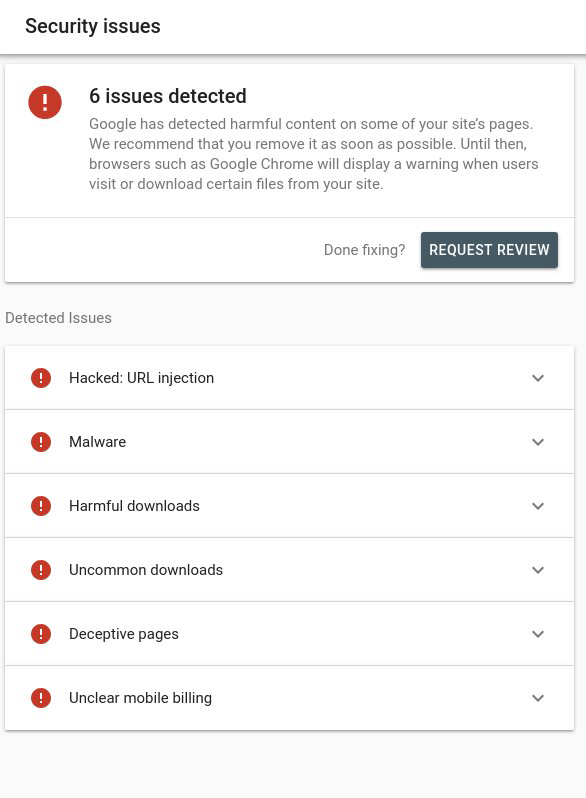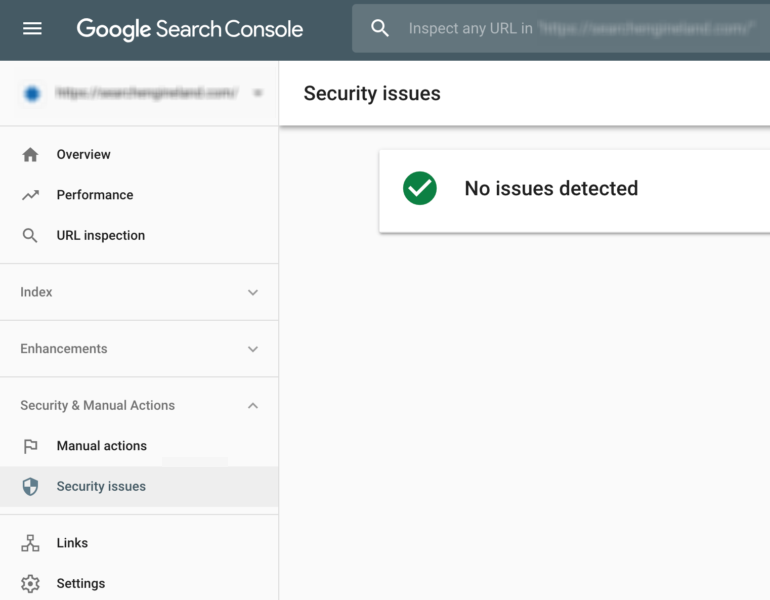SEO Basics for Web Developers

Using SEO basics from the beginning is essential to make the entire process effective. SEO should be first and foremost when developing a website. Furthermore, the SEO base structure should be established right from the start. This article will show you how to go about it so your site gets maximum visibility in search engine ranking.

Discover how at OpenReplay.com.
It’s a no-brainer that a website has to rank on the search engine results to be effective in the market. This is met by accommodating SEO into web design. This is where knowing SEO basics is a must for web developers. SEO optimization has become paramount for business organizations to boost their online visibility. Most of the time, web developers are concerned only with making a website work as it should. However, if factors that impact SEO are neglected often during web development, they could pile up, making it impossible for the website to rank better. A business website could be lost in the enormous sea of online content without proper SEO optimization.
Important SEO Fundamentals for Web Developers
The website optimization process to meet the Google algorithms requirements in a way equals building a website corresponding to the users’ requirements. Users appreciate a fast-loading website that is error-free and can be browsed seamlessly on mobiles. That said, let’s explore the fundamentals that every web developer should know.
Website Loading Time
Website speed and loading time are the most important after ensuring your website can be indexed. The page speed test of a website with a good search result is vital; thus, it’s an essential factor to consider when it comes to website design. According to Semrush, slow page response increases website bounce rate.
 Unsurprisingly, these users will skip over the website if it takes a second more to load. Furthermore, a slow-loading website could affect its search engine rankings as well. It would be challenging for an SEO expert to boost its rank with SEO content. It’s therefore highly recommended that developers should integrate SEO in the process of development as well as to work closely with SEO experts or learn core web vitals SEO principles in google search console metrics about Website speed and performance.
Unsurprisingly, these users will skip over the website if it takes a second more to load. Furthermore, a slow-loading website could affect its search engine rankings as well. It would be challenging for an SEO expert to boost its rank with SEO content. It’s therefore highly recommended that developers should integrate SEO in the process of development as well as to work closely with SEO experts or learn core web vitals SEO principles in google search console metrics about Website speed and performance.

Redirects
The digital landscape will continue to evolve. Furthermore, everyone is recreating and improving their old sites and domains with advanced features. Another important factor in SEO for web development is Redirects. Redirects smoothly lead users to the correct page during site migration and launch. For web developers, using 301 and 302 redirect codes is paramount. Don’t just rely on the code to be rendered. Rather, use tools to test the redirect codes no matter how many pages are being redirected to the same destination. Redirects send users from URL to URL. The first URL is where users click, type, or make a request. The second URL is the new destination. When to use 301 Redirects
- If you’re changing the page URL
- Domain Migration from page to page
- If you want to pass the page authority to a new page
 When to use 302 Redirects
When to use 302 Redirects - If you’re making any changes to the current page
- If you don’t want to pass the page authority
- At some point in the future, the old page will be back

Sitemaps
When it comes to search engine optimization, better crawlability plays an important role. When a search engine attempts to index a website, it should be able to crawl the whole site. Sitemaps are valuable if it has issues indexing the website. Adding a sitemap ensures that the website is properly indexed. Moreover, ensure that all pages listed in the XML sitemap do not have wasteful redirects, are error-free, and have clean code. From creating content to design to SEO, the sitemap is invaluable. You will refer to it constantly in the stages of development to stay on track. Sitemaps tell Google which files and pages you think are important and provide valuable information regarding these files. Here’s an example of a basic XML sitemap:
<?xml version="1.0" encoding="UTF-8"?>
<urlset xmlns="http://www.sitemaps.org/schemas/sitemap/0.9">
<url>
<loc>https://www.example.com/foo.html</loc>
<lastmod>2022-06-04</lastmod>
</url>
</urlset>Mobile Responsiveness
Without a doubt, a website that’s mobile-responsive provides a better user experience. Furthermore, a responsive design helps them navigate the website easily without zooming in or out of the content. Smartphones are getting smarter, and search engines keep setting higher bars for mobile SEO factors.
A mobile-friendly website will always rank better than a desktop-supported website. Thus, web developers must ensure that the website is compatible with a wide array of devices for good search engine optimization. Furthermore, Google uses mobile-first indexing, meaning that the mobile version of the website gets crawled first.
 In the above image, you can see that in the Google search console, the primary crawler is a smartphone.
Simply put, a mobile-responsive design is when a site is responsive, as the content and/or layout responds to the screen size on which it’s displayed. Moreover, a responsive website adapts itself to the device used to see it. Use Google’s mobile-friendly testing tool to get your website report.
In the above image, you can see that in the Google search console, the primary crawler is a smartphone.
Simply put, a mobile-responsive design is when a site is responsive, as the content and/or layout responds to the screen size on which it’s displayed. Moreover, a responsive website adapts itself to the device used to see it. Use Google’s mobile-friendly testing tool to get your website report.

Implement Structured Data
For most people involved in SEO, structured data could be knotty. And this is where developers could truly shine. Developers already know how to format a page so all the parts will flow well and can be read by humans and search engines alike. When used well, structured data lets Google know where and what’s on a web page.
Furthermore, it could also inform Google precisely what questions you are answering. Structured data is a way for the business website to convey its content to search engines. It boosts visibility.
Google uses the structured data on web pages to generate snippets, which display special enhancements on the SEO results. Regardless of whether they appear at the top or bottom on the search results page, rich snippets are way more visible and prominent than standard results, and therefore, the click-through rates are much better.
Take a look at an example of SERP with and without structured data.
 In the above example, rating(Review, AggregateRating) markup has been used. Take a look at an example of how review markup can be implemented.
In the above example, rating(Review, AggregateRating) markup has been used. Take a look at an example of how review markup can be implemented.
<html>
<head>
<title>Legal Seafood</title>
<script type="application/ld+json">
{
"@context": "https://schema.org/",
"@type": "Review",
"itemReviewed": {
"@type": "Restaurant",
"image": "https://www.example.com/seafood-restaurant.jpg",
"name": "Legal Seafood",
"servesCuisine": "Seafood",
"priceRange": "$$$",
"telephone": "1234567",
"address" :{
"@type": "PostalAddress",
"streetAddress": "123 William St",
"addressLocality": "New York",
"addressRegion": "NY",
"postalCode": "10038",
"addressCountry": "US"
}
},
"reviewRating": {
"@type": "Rating",
"ratingValue": "4"
},
"name": "A good seafood place.",
"author": {
"@type": "Person",
"name": "Bob Smith"
},
"publisher": {
"@type": "Organization",
"name": "Washington Times"
}
}
</script>
</head>
<body>
</body>
</html>And the same can be tested using Rich Results test tool.

User-Friendly URLs
Web developers should remember that URLs should be descriptive, concise, and easy to read to be effective. Both search engines and users like the quality of page addresses, which could easily be advantageous to your website. SEO guide for developers includes much information about bot-friendly writing URLs. You can, specifically, do the following:
- Use one domain and subdomain. A subdomain could generate mixed results; thus, using a single domain whenever possible is the best option.
- Make use of hyphens. Rather than spaces, bots prefer hyphens to separate words in URLs.
- Keywords. Add keywords to the URLs where they naturally fit. Do not, however, use too much. Furthermore, refrain from making the URL too long so it won’t look spammy.
- Get rid of unsafe characters. Some characters, such as carats, tildes, and spaces, could make bots stop in their tracks. Thus, it’s best to avoid them.
Here are some user friendly URL suggestions:

Website Security
To the search engines, website security is an absolute must. Regarding website development, web developers should make sure to have an SSL in place and with no errors. Furthermore, it’s also necessary to have safeguards to ensure that the website doesn’t have vulnerabilities.
 For every business these days, protecting a website against phishing, cyber-crimes, cyber-attacks, and malfunctions is paramount. Security testing is always needed to defend against data loss or theft caused by digital hackers. In the present scenario, cyber security has become the primary shield, and with technological advancement, you need to detect, monitor, upgrade, and patch continuously to avoid risks.
From the beginning, website security features should be implemented to keep up with the new threats of continuous technological advancement. Furthermore, the security features should be monitored and maintained as well. Getting hacked hurts the user experience and could cause the site to slow down, lose traffic, lose sensitive client information, and crash. Google Search Console is also giving us notifications related to security issues.
Google Search Console with website security issues.
For every business these days, protecting a website against phishing, cyber-crimes, cyber-attacks, and malfunctions is paramount. Security testing is always needed to defend against data loss or theft caused by digital hackers. In the present scenario, cyber security has become the primary shield, and with technological advancement, you need to detect, monitor, upgrade, and patch continuously to avoid risks.
From the beginning, website security features should be implemented to keep up with the new threats of continuous technological advancement. Furthermore, the security features should be monitored and maintained as well. Getting hacked hurts the user experience and could cause the site to slow down, lose traffic, lose sensitive client information, and crash. Google Search Console is also giving us notifications related to security issues.
Google Search Console with website security issues.
 Google Search Console without website security issues.
Google Search Console without website security issues.

Benefits of SEO in Web Development
Every business owner wants to grow his/her brand. Search engine optimization greatly benefits organizations intent on providing value and boosts visibility to the target audience. The following are some of the benefits of integrating SEO in website development.
- SEO boosts high-quality traffic and organic discovery Organic visibility leads to increased traffic, which is a monumental SEO benefit. Search engine optimization is customer-centric and hyper-targeted. An effective SEO strategy helps deliver web pages to the relevant people through pertinent search queries. Since users are already looking for what a site has to offer, organic visibility propels high-quality traffic without trying to persuade or entice the visitor.
- SEO Boosts Credibility Ranking on Google’s first page showcases credibility to prospective customers. Google ranks websites based on on-page and off-page signals, such as site speed, content, and mobile usability. Although most consumers probably don’t consider these signals, users expect Google to deliver valuable and relevant content first. Trust and credibility are developed on search engine authority and a high-quality service or product that builds credibility among web visitors or users.
- SEO Provides an Impressive ROI ROI, or Return on Investment, is vital when evaluating digital marketing channels. Although search engine optimization could take some time to get results, a high-quality strategy ultimately will deliver an impressive return on investment. Search engine leads offer a 14.6 percent close rate, almost 12 percent greater than traditional marketing. Nevertheless, there would be no leads if a website ranks at the bottom of pages 2, 3, 4, or not at all. Visibility in search engines correlates directly to improved web traffic and more revenue, making ROI one of the most significant benefits of SEO for organizations.
- SEO Targets the Marketing Funnel Driven by SEO, content marketing includes different types of targeting at each marketing funnel step. Although top or middle-of-the-funnel blog posts will not initially convert, this builds brand awareness and loyalty. These traits will lead to conversion.
Conclusion
The collaboration and intersection between web developers and SEO professionals are vital. Web developer’s understanding of SEO basics could go a long way to successful SEO performance and collaboration. The key to an SEO-friendly and well-designed website is to bridge the gap between SEO and web development. As a business or website owner, you should encourage your teams to work together from the start to optimize the website for usability and SEO. You should always remember that search engine optimization is critical because different search engines are not perfect. If you fail to take steps to counter the failings, the website could pay the price. Offering value to users and customers is the best way for a website to rank high in the search engine rankings. So, when building a website, web developers should adhere to the best practices. Moreover, developers should write quality content, design top-tier user experiences, and optimize SEO best practices to boost search results.
Truly understand users experience
See every user interaction, feel every frustration and track all hesitations with OpenReplay — the open-source digital experience platform. It can be self-hosted in minutes, giving you complete control over your customer data. . Check our GitHub repo and join the thousands of developers in our community..



